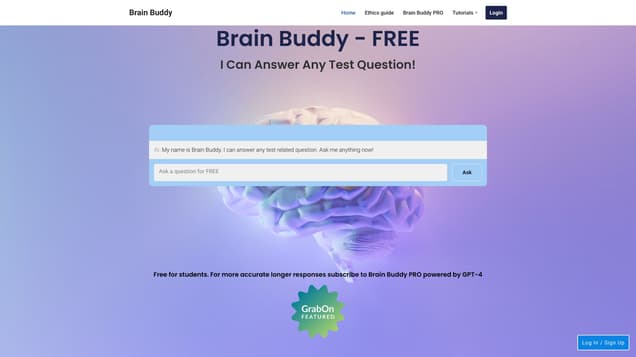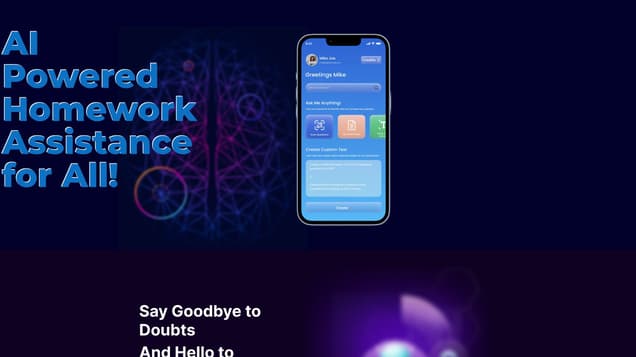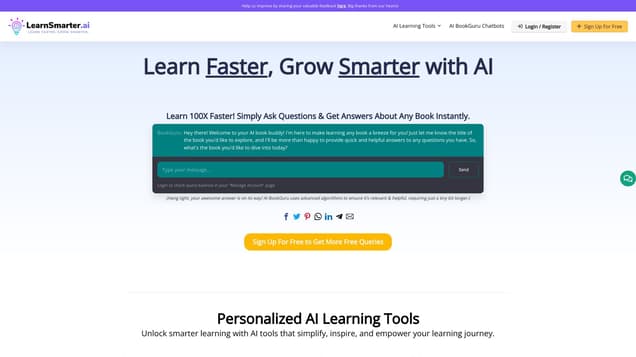
What is Joypanner?
Joypanner is an AI-powered Socratic guide designed to enhance users' learning experience and provide comprehensive insights into diverse subjects.
Information
- Language
- English
- Price
- Free
Pros VS Cons
- Pros
- Joypanner promotes critical thinking, problem-solving skills, and enjoyable learning through a wide range of categories, intriguing questions, and coverage of scientific and environmental topics, benefiting parents, educators, and fostering curiosity-driven conversations.
- Cons
- However, the lack of offline functionality, limited subject categories, overwhelming potential for children, constant internet requirement, and absence of customization options, personalized learning paths, assessment features, and multilingual support may hinder its effectiveness.
Freework.ai Spotlight
Display Your Achievement: Get Our Custom-Made Badge to Highlight Your Success on Your Website and Attract More Visitors to Your Solution.
Website traffic
- Monthly visits397
- Avg visit duration00:02:08
- Bounce rate20.46%
- Unique users371
- Total pages views2.31K
Access Top 5 countries
Traffic source
Joypanner FQA
- What makes the earth spin?

- Why is the sky blue?

- What causes a rainbow?

- Why is ice slippery?

- Why do we see the colors of a rainbow in a specific order?

Joypanner Use Cases
Engage in deeper learning through Q&A adventures
Think through anything you like to know with Dr. Hoo
Explore questions about nature, human body, animals, plants, human behavior, and culture
Discover the reasons behind natural phenomena like the earth's spin, the sky being blue, the formation of rainbows, the slipperiness of ice, and the order of colors in a rainbow
Understand the science behind thunder and lightning, earthquakes, telescopes, atoms, electricity, magnets, volcanic eruptions, tornadoes, seasons, Northern and Southern Lights, clouds, tides, vibrant colors of rainbows, solar eclipses, glaciers, time zones, earthquakes' frequency, day and night, different types of rocks, formation of lakes, tree rings, the importance of recycling, double rainbows, rainbows on other planets or in space, animals' ability to see rainbows, twinkling stars, translating colors and shapes of flowers into music, cooperation between flowers and bees, estimating the number of leaves on a tree, and wind direction at night at the beach.










